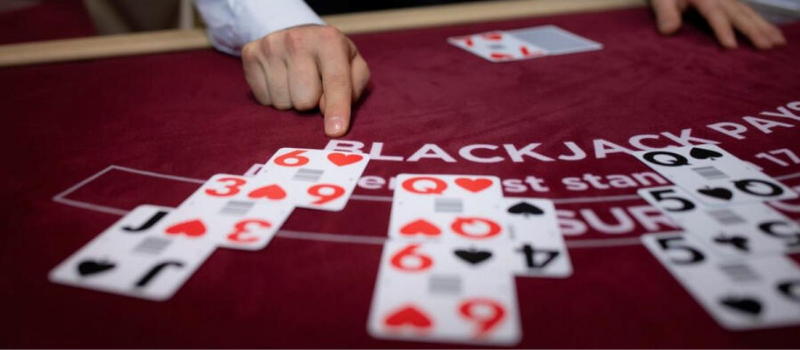How Latin America and Africa's Local Markets Are Driving Affiliates to Rethink Casino Bonuses
Bonuses are the pillars of affiliate marketing today. For years, that was the gold standard hook: throw in a big match offer and some free spins, and conversions came. However, when campaigns entered Latin America and Africa, that formula broke down.

Bonus 101
Bonuses don't work on math; they work on momentum. In slot gaming, it's not the actual number that counts; it's the flow. Any bonus where the reels keep spinning, even if it's just for a short time, feels organic.
Crypto-based slots like Plinko take the game to a whole new level. Born out of the blockchain era, plinko gambling is based on transparency. Players release a virtual ball, which bounces across pegs before it lands, and each event in that drop is checked on-chain. The time delay and complex wagering conditions around crypto bonuses are long gone in this environment. They are applicable in real-time, and the deposits, multipliers, and free drops are instantly confirmed via smart contracts.
Live casino players have different minds. When a human dealer enters the frame, automation disappears and presence becomes dominant. Bonuses based on streaks, shared wins, or table loyalty give off a feel of personal acknowledgment rather than promotion.
The reason is that sports bettors don't play by these rules. They work in the world of odds, not chance. Either a bonus for a local event or a "miss by one" insurance bonus confirms their wisdom. It says, "We received your call, and it was nearly." In such contexts, the bonus is no longer persuasion but conversation.
Reading the Local Pulse
In Latin America, gambling is never far from social life; it is part of the noise, color, and celebration. Loyalty is not created through repetition but through stories. A bonus based on the football match, the festival, or the shared moment not only sanctions play but prolongs the party.
Brazil's iGaming market is expected to reach $3.6 billion in 2028. It brings together sports, mobile games, and entertainment in a single digital culture. Affiliates who get that collective rhythm create participation, not transactions. People respond to fitting in rather than deals.
In Africa, the beat is different. In Nigeria alone, the sports betting sector is expected to be worth $420 million by 2030, supported by mobile money and micro-deposits. A bonus that takes too long to redeem or requires additional steps is meaningless. The biggest motivator is simplicity, rewards at the precise time it has promised.
Affiliates who treat each click as a trust, registration, reward, or withdrawal begin to stand out. When things are clear and certain, loyalty is the natural outcome. There is no need for large incentive offers.
Fairness is a Matter of Perspective
Marketers often discuss fairness. In Western markets, fairness tends to mean clear terms, audits that can be seen, and links to regulators. However, justice in developing countries is not only procedural; it is also vocal.
In Africa, fairness has moral value. Affiliates are viewed as representatives of trust and morality, not just promoters. A brand that fails to keep its word not only loses business, it loses honor.
That's why design is not as important as tone. Too corporate or foreign-sounding messages immediately alienate audiences. Successful affiliates in these regions explain instead of persuading. They request permission to speak before they attempt to sell. Localization is an act of ethics, not a mechanical one.
The End of the Universal Welcome Bonus
The concept of a universal welcome bonus is slowly disappearing. In its place is a set of culturally calibrated incentives based on actual economic behavior. In some regions, cashback is natural since it reflects daily spending. In other cases, milestone-based or gamified loyalty programs work better.
The common factor between them is empathy, not automation. Real personalization is not generated by algorithms but achieved through listening. Affiliates who stop treating audiences as "traffic" and start treating them as people with expectations will create campaigns that feel alive.
Global templates, stock banners, and recycled phrases are completely unsellable in these environments. Affiliates must grow organically in resonance with the local language, idioms, images, and references that resonate authentically. This is not localization to an audience, it's localization with an audience.
Trust Isn't a Tagline
Many affiliates who enter new markets discuss trust as a branding process. They blog about it, have a hashtag, and design for it. However, that is not how genuine trust is preached; it is lived.
In markets created by broken promises over decades, such as banks and telecoms, audiences can feel sincerity immediately. A bonus that arrives at the right time, a payout that has no reason why it could not happen, and terms worded like a dialogue are signs of trustworthiness.
Consistency Affiliates whose consistency speaks louder than the copy they use become fixtures within communities. Their credibility transforms into currency. Others that do this based solely on headline offers come and go as soon as the incentive has run its course.
Learning From the Developing World
The insights from Latin America and Africa are not regional oddities; they're a taste of where affiliate marketing is going.
When a bonus stops being bait and becomes dialogue, the iGaming value system changes. It demonstrates that growth will not be achieved through increased automation or algorithmic targeting but by reinstating something human, respect.
Affiliates who are humble enough to enter these markets are already finding this to be true. They are not peddling incentives; they are translating trust. In doing so, they're proving that the next phase of global marketing is defined not by scope but by understanding.







.png)







